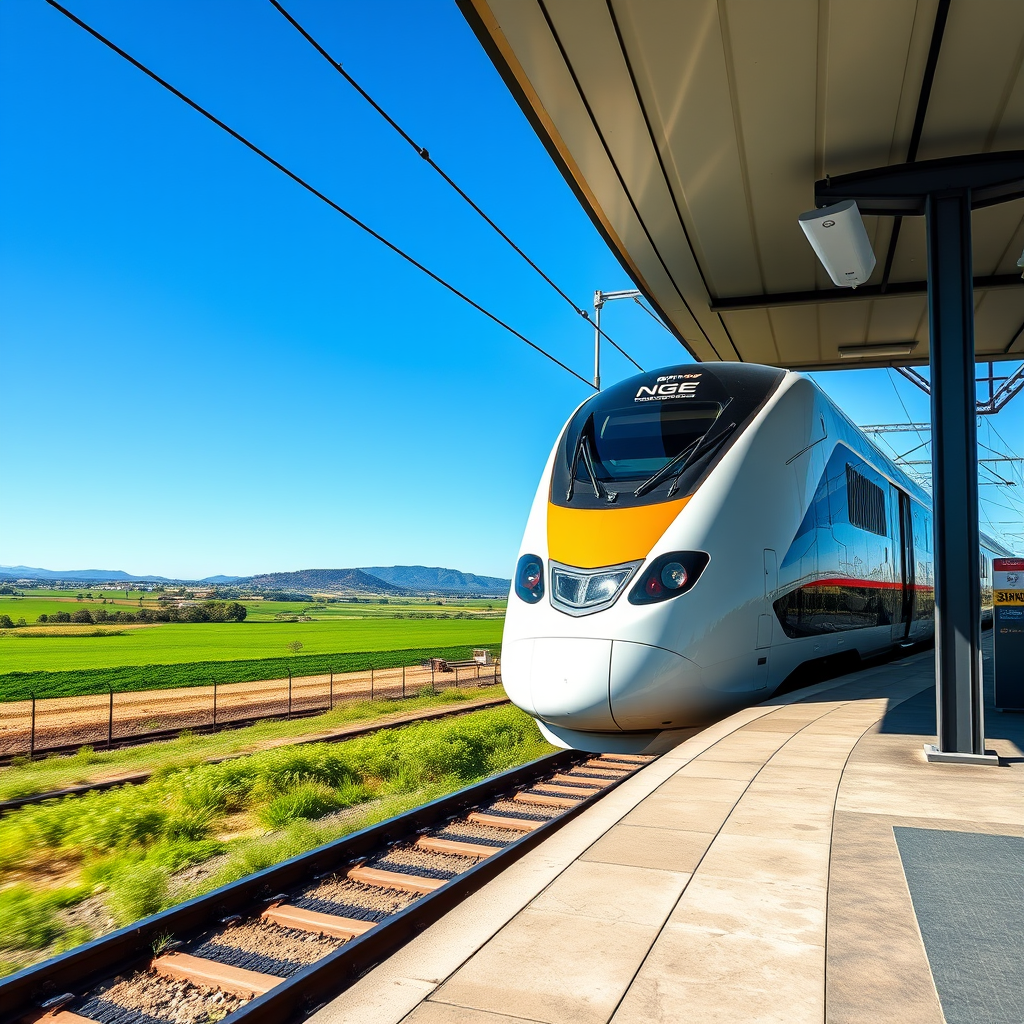Uruguay’s Ferrocarril Central: PPP Funding Success

This article examines the financial structuring and strategic implications of the Ferrocarril Central railway project in Uruguay, a significant public-private partnership (PPP) initiative. The project, a testament to international collaboration in infrastructure development, has secured substantial funding over several years, showcasing the attractiveness of well-structured PPPs in emerging markets. We will delve into the multiple funding rounds, exploring the roles of various financial institutions and the strategic rationale behind the project’s financing. Furthermore, we will analyze the project’s commitment to sustainability, the long-term maintenance contract, and the broader implications for Uruguay’s economic development and its integration into global trade networks. Finally, we will assess the project’s success as a model for future large-scale infrastructure projects in Latin America and beyond, highlighting the crucial role of both public and private sector collaboration in achieving sustainable infrastructure development goals.
Securing the Ferrocarril Central: A Multi-Stage Funding Strategy
The Ferrocarril Central project’s financial success is a testament to a phased funding approach. Initial investments of $858 million in 2019, $75 million in 2020, and $250 million in 2022 laid the groundwork for the project’s construction and initial operational phase. The recent injection of $110 million further solidifies the project’s financial stability, showcasing the confidence of both existing and new investors. This multi-stage funding strategy mitigates risks associated with large-scale infrastructure projects and allows for incremental progress based on achieved milestones and performance indicators.
A Consortium of Investors: Sharing Risk and Expertise
The consortium structure, involving NGE Concessions, SACEEM, Sacyr Concesiones, and BERKES, demonstrates a shared-risk model. This approach not only diversifies financial responsibility but also leverages the specialized expertise of each partner. The involvement of international financial institutions such as the Inter-American Development Bank (IDB), Allianz Capital Partners, CAF Asset Management, Andean Development Corporation, Intesa Sanpaolo, Sumitomo Mitsui Banking Corporation (SMBC), and Global Infrastructure Partners, highlights the global confidence in the project’s viability and potential returns. This diverse investor base further mitigates risk and ensures access to a wide range of financial instruments and expertise.
Sustainability and Long-Term Commitment: A Key Differentiator
The project’s commitment to sustainability, evidenced by the use of electric locomotives, is not merely a public relations exercise. It reflects a strategic decision to align with global environmental standards and attract environmentally conscious investors. Furthermore, the 22-year maintenance contract signifies a long-term commitment from NGE to the project’s success and Uruguay’s economic growth. This long-term perspective is crucial for fostering trust among stakeholders and attracting further investments in the country’s infrastructure.
Strategic Alignment with Global Infrastructure Trends
The Ferrocarril Central project exemplifies the growing trend towards PPPs in infrastructure development, particularly in emerging economies. The project’s success demonstrates the potential for leveraging private sector expertise and capital to address critical infrastructure needs. The project’s alignment with NGE Group’s strategy to fund infrastructure crucial to the ecological transition underscores the increasing importance of sustainable infrastructure development in attracting international investment and fostering long-term economic growth. The involvement of a sophisticated network of financial and legal advisors underlines the importance of robust due diligence and risk mitigation in projects of this scale.
Conclusion
The Ferrocarril Central project stands as a compelling case study in successful public-private partnerships and strategic infrastructure financing. The phased funding approach, diverse investor consortium, and commitment to sustainability have created a financially robust and environmentally responsible project. The project’s success hinges on the collaborative efforts of the public and private sectors, demonstrating the potential for large-scale infrastructure projects to drive economic growth and social development. The significant financial investment, the involvement of a range of international financial partners, and the long-term maintenance contract all highlight the project’s strategic importance to Uruguay and its commitment to sustainable development. The project’s success serves as a model for future infrastructure development initiatives, showcasing the efficacy of combining public sector objectives with private sector efficiency and expertise. The meticulous approach to financial structuring, risk mitigation, and environmental responsibility should be emulated in similar projects globally. The lessons learned from the Ferrocarril Central project can guide future infrastructure development efforts, promoting economic growth while adhering to the principles of sustainability and effective public-private collaboration. The future success of the project will be instrumental in further solidifying Uruguay’s position as a stable and attractive investment destination in Latin America, driving further foreign direct investment and promoting national economic development.


